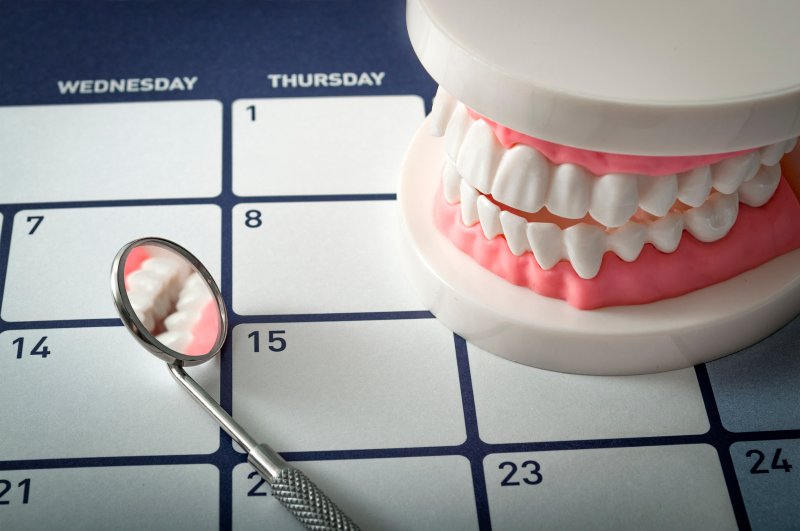
Dentures can completely change the lives of people who have lost their teeth, restoring their confidence in how they look and feel every day. However, like any life change, dentures take some getting used to.
The first few weeks with a new prosthetic can throw many patients for a loop, so it may be helpful for prospective denture patients to prepare for what the next month or so will look like. Here’s a brief rundown of what you can expect when you first get your oral appliance.
Early Discomfort
When you first get your dentures, your gums will have to get used to supporting them all day, which will naturally lead to a little discomfort. This may be made a little worse if you’ve had teeth extracted recently.
In the first month, but especially in the days after getting your prosthetic, you’re likely going to experience some sore spots along the gumline and excess saliva production.
If these problems become severe, it may be that your dentures don’t fit as well as they ought to and that they’ll need to be relined. It’s fairly typical to need multiple relinings as the gums heal from any tooth extractions, so be sure to see your dentist often to ensure that your prosthetic fits well.
Speaking Clearly
Many people report a little bit of a lisp when they first get their dentures. This will go away with time, but if you want to work through it quickly you should practice speaking aloud as much as possible. Read aloud from your favorite book and take note of words that give you difficulty. Then, practice those words until you can say them naturally.
Diet Changes
One of the biggest challenges denture patients face is learning how to eat again. At first, it may be a good idea to stick with softer foods and smoothies until you’re confident that you can eat without your dentures popping out.
When you are ready to move on to tougher meals, it’s a good idea to take small bites or cut your food into tiny pieces to make chewing a little easier. You should also steer clear of biting into anything with your front teeth; this can cause the back of your dentures to pop off of your gums.
After around the first month or so, these problems should start to fade. So long as you see your dentist every few months, you should have no problems enjoying your new smile for a long time to come!
About the Author
Dr. George Hoop’s experience in the dental field has spanned over three decades, and the one thing that hasn’t changed is how much he enjoys seeing his patients’ reactions to a brand-new smile! Dr. Hoop graduated second in his class from the Emory University School of Dentistry, and he completed a periodontal specialty residency at the same school. He’s since continued his education through the Pikos Institute and the Dawson Academy, among other fine dental institutions.
If you have any questions about adjusting to dentures, he can be reached at his website or by phone at (239) 939-7299.

